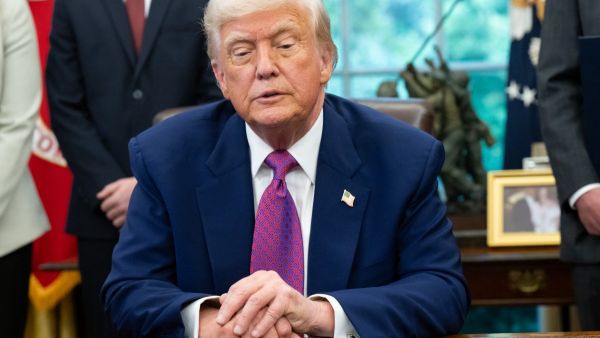ALBAWABA — Columnist Uriel Daskal makes the harshly critical claim that U.S. President Donald Trump has made a major shift in American foreign policy by essentially ignoring Israel in favor of short-term economic interests and strategic agreements, including with the Houthis and possibly Iran, in an opinion piece published by the Hebrew daily Maariv.
Daskal claims that Trump's choice to come to an agreement with the Iran-backed Houthi group in order to stop their assaults on American and other vessels in the Red Sea is part of a larger plan to stabilize world trade routes and energy prices. According to the author, Trump's regional calculations no longer center on Israel, exposing a new reality.
Daskal characterizes this action as a watershed, arguing that Trump "threw Israel under the bus" as part of a larger reordering of America's geopolitical objectives rather than only because he was at odds with Prime Minister Benjamin Netanyahu.
The piece also emphasizes how growing economic worries are the driving force for Trump's approach to Iran, which includes indications of a readiness to resume talks on its nuclear program. According to Daskal, Trump is focused on preventing a domestic recession by relaxing global energy markets and lowering domestic fuel costs, since IMF projections indicate that U.S. GDP would drop to 1.8% in 2025.
Daskal adds, "Trump may soon strike a nuclear deal with Iran, provided it stabilizes energy prices," implying that economic expediency has trumped Israel's security concerns.
Daskal cautions that as Gulf nations provide the United States with increasingly attractive incentives, Israel's clout in Washington may be diminishing. He contends that Israel is being seen as a supporting actor in this new environment and is no longer crucial to US geopolitical policy.
He also mentions a more general departure from the U.S.-dominated post-World War II system, referring to international initiatives led by the BRICS countries to abandon the dollar, which may make it more difficult for Washington to implement sanctions.
The relationship between the United States and Israel, which was previously based on similar democratic ideals, is deteriorating, the author regrets. Trump's emphasis on transactional diplomacy may jeopardize strategic military initiatives like the Arrow missile defense system, which is the product of previous U.S.-Israeli collaboration.
Daskal adds, "The Israeli air force's military superiority, which was previously assured by strong U.S. backing, is now less certain."
Daskal comes to the conclusion that Trump's move away from strategic alliances and toward deal-based diplomacy might change Israel's standing internationally. Trump cautions that old ties, notably with Israel, seem to be less important now that he is putting more emphasis on economic growth and political stability.










